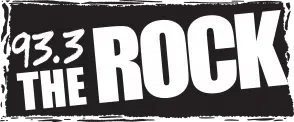After a long process, the wait is over. North Battleford city council approved its first budget; set at $45 million, it marks a six per cent increase over last year.
“Now that the budget is passed, there’s not a lot of change in services,” said Mayor Kelli Hawtin following Thursday night’s approval meeting.
Council had some last-minute requests including a summer student position to take care of the weeds, which had been granted. The role, costing $17,500 would go toward helping to maintain infrastructure such as roads and sidewalks.
“There’s not really a change in staff compliment, not really a change in service level that the city will see. I guess it’s business as usual.”
Over the month of January, community and city delegations presented their own budgets to council and updates were made to the draft.
 Capital Expenditures (Graphic/North Battleford Budget)
Capital Expenditures (Graphic/North Battleford Budget)This year, taxes will be increased by 4.39 per cent that breaks down as follows: 1.93 per cent increase for city operations, a 0.88 per cent increase for capital projects, and a 1.58 per cent increase for policing services – the latter of which is a fixed cost.
This year is a property reevaluation year with the Saskatchewan Assessment Management Agency (SAMA). Based on current values, a sampling of residential and commercial property was provided by the city.
A home with 50-foot frontage and valued at $146,400 will see a yearly increase of $78.91. A home valued at $350,000 will see a yearly increase of $136.34. Meanwhile, a commercial property valued at $281,350 will see a yearly increase of $244. 50 and a property valued at $500,000 will see an increase of $434.52.
Speaking to the council, Director of Finance Margarita Pena said the capital expenditure for the general fund is expected to be $3,544,000 and UPAR at $3,810,000 for a combined total capital expenditure of $7,354,000.
Among some of the largest capital expenditures include phase one of replacing the roof of city hall, which has a funding source of $55,000 from investment return, washrooms and flooring upgrades at the Don Ross Centre to replace fixtures – some that that date back to the 1960’s and comes at a cost of $100,000. The funding source will come from both the gas tax and reserves.
In addition, there has also been an 0.1 per cent increase to recycling collection charges along with a 5.2 per cent increase to garbage collection charges. Meanwhile, the utility fund, which was approved last October saw an increase to water services of six per cent and a four per cent increase in sanitary sewer services.
—
julia.lovettsquires@pattisonmedia.com
On BlueSky: juleslovett.bsky.social







